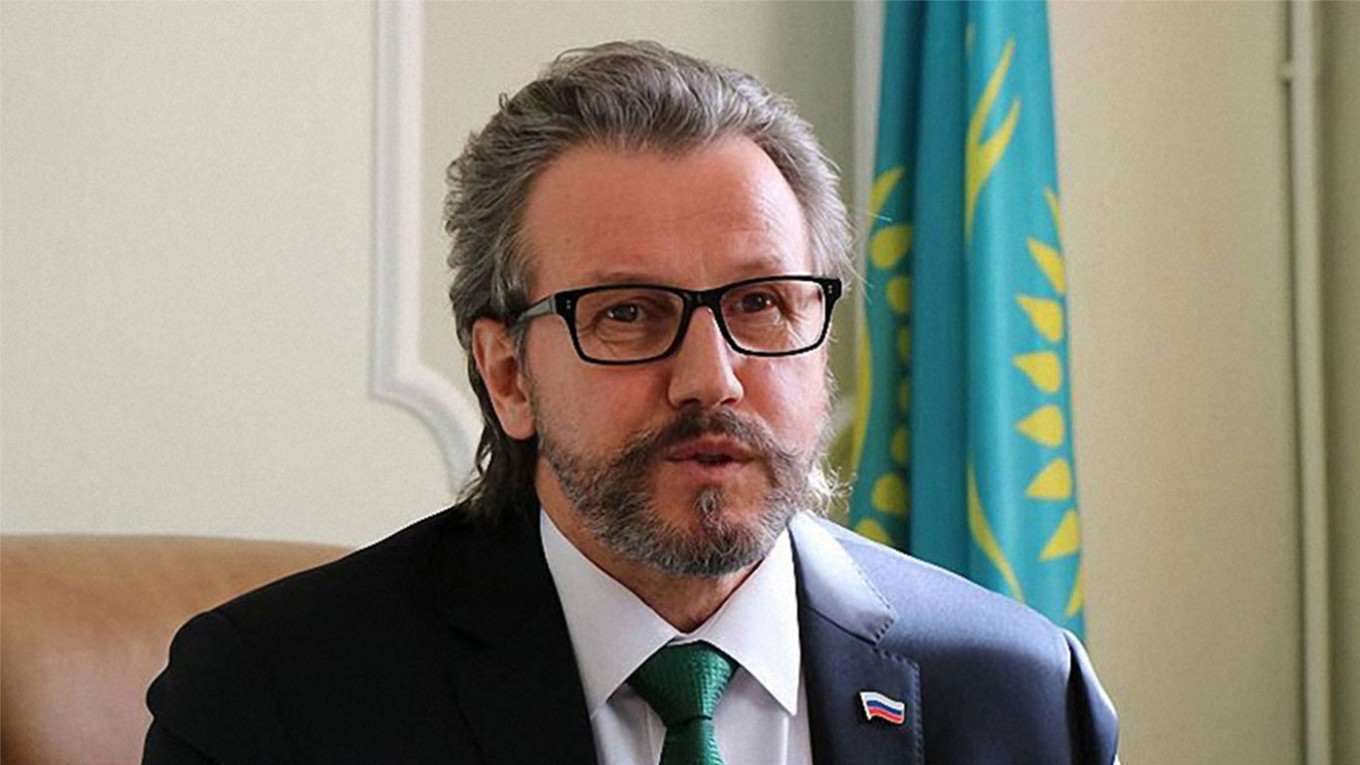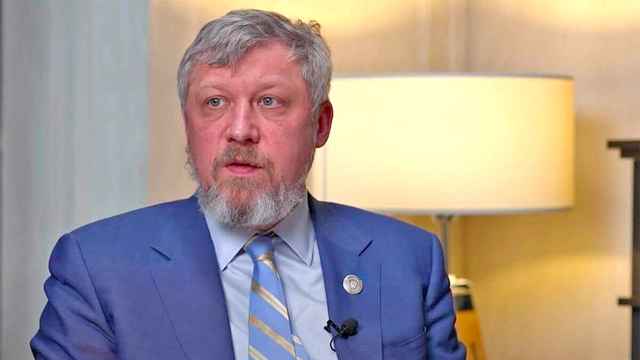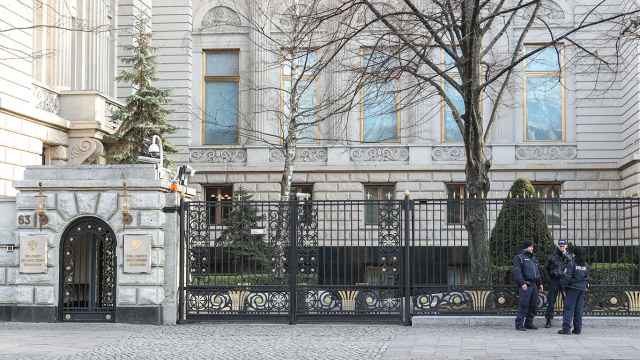A Russian consul general in Kazakhstan has been sacked following a controversial interview in which he claimed that the Central Asian country was intentionally discriminating against the Russian language in schools.
Yevgeny Bobrov, who headed the Russian consulate in Almaty, said in the interview published last week that Kazakhstan, which is home to the world's second-largest ethnic Russian minority after Ukraine, was “witnessing a decline in the use and study of the Russian language.”
“There are objective reasons for this phenomenon such as the decline of the [ethnic] Russian population…and there is also a certain tendency in the education ministry [of Kazakhstan] towards changing the state curriculum [to make it] based on the Kazakh language,” the state-run TASS news agency quoted Bobrov as saying.
The now-ex-consul added that Kazakh society was “worried” about the alleged reduction of schools where classes are delivered in Russian, as well as the exclusion of Russian language classes from first-grade curriculums in Kazakh-speaking schools.
“A balanced language policy and cooperation between Russia and Kazakhstan…on educational and cultural initiatives can help preserve the richness of the Russian-speaking culture in Kazakhstan and strengthen the unity of the nation," Bobrov added.
Bobrov’s accusations prompted a swift reaction from Kazakhstan’s foreign ministry.
On Monday, ministry spokesperson Aybek Smadiyarov confirmed that Bobrov had completed his diplomatic posting in Kazakhstan.
“Perhaps this person was not fully aware of the situation in our country... There are no plans for a complete transition of all schools in the country to use Kazakh as the only language of instruction,” said Smadiyarov.
“Today, a citizen [of Kazakhstan] has the right to choose which language his children will be taught in,” he added.
According to Kazakh education ministry statistics cited by Smadiyraov, out of 7,711 state schools in Kazakhstan, only 3,957 teach exclusively in the Kazakh language, while 1,203 schools teach only in Russian and 2,551 use both languages.
This is not the first time that comments by high-profile Russians have sparked outrage among Kazakh officials.
In November 2022, pro-Kremlin political analyst Dmitry Drobnitsky said on state television that Kazakhstan could become Russia's "next problem" after Ukraine.
“There, too, Nazification processes could begin,” Drobnitsky said, invoking the Kremlin's justification for invading Ukraine.
“And there are a lot of Russians there… Sorry, Semipalatinsk is also there, and the nuclear fuel for our entire atomic industry is also there,” said Drobnitsky, referring to the Soviet Union's main nuclear test site.
After the Kazakh foreign ministry demanded that the Russian leadership make an official statement about Drobnitsky’s comments, Kremlin spokesman Dmitry Peskov said that statements made on Russian state TV "in no way reflect the official position of the government."
Ties between longtime allies Kazakhstan and Russia have been strained since Moscow launched its full-scale invasion of Ukraine in February 2022.
A Message from The Moscow Times:
Dear readers,
We are facing unprecedented challenges. Russia's Prosecutor General's Office has designated The Moscow Times as an "undesirable" organization, criminalizing our work and putting our staff at risk of prosecution. This follows our earlier unjust labeling as a "foreign agent."
These actions are direct attempts to silence independent journalism in Russia. The authorities claim our work "discredits the decisions of the Russian leadership." We see things differently: we strive to provide accurate, unbiased reporting on Russia.
We, the journalists of The Moscow Times, refuse to be silenced. But to continue our work, we need your help.
Your support, no matter how small, makes a world of difference. If you can, please support us monthly starting from just $2. It's quick to set up, and every contribution makes a significant impact.
By supporting The Moscow Times, you're defending open, independent journalism in the face of repression. Thank you for standing with us.
Remind me later.






